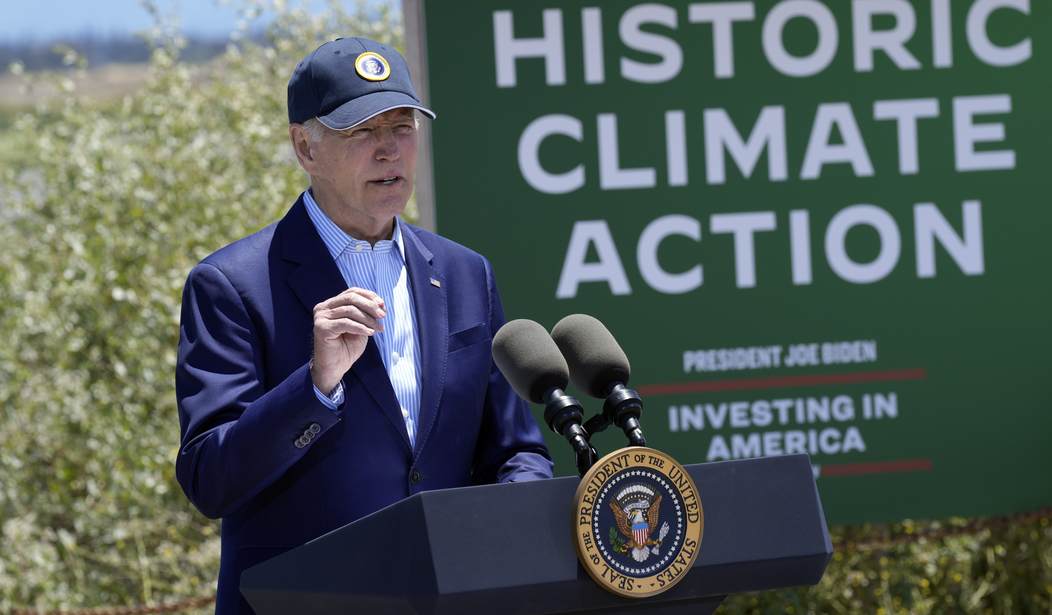Joe Biden is starting to ride back his committments on forcing the transition to electric vehicles (EVs).
According to a report from The New York Times, Biden's administration is giving up on its targets for production of EVs in an apparent "concession" to automakers and labor unions.
The plan is also said to be an election ploy as Democrats fear losing the support of automakers and labor unions:
Instead of essentially requiring automakers to rapidly ramp up sales of electric vehicles over the next few years, the administration would give car manufacturers more time, with a sharp increase in sales not required until after 2030, these people said. They asked to remain anonymous because the regulation has not been finalized. The administration plans to publish the final rule by early spring.
The change comes as President Biden faces intense crosswinds as he runs for re-election while trying to confront climate change. He is aiming to cut carbon dioxide emissions from gasoline-powered vehicles, which make up the largest single source of greenhouse gases emitted by the United States.
At the same time, Mr. Biden needs cooperation from the auto industry and political support from the unionized auto workers who backed him in 2020 but now worry that an abrupt transition to electric vehicles would cost jobs.
The Times notes that Biden's concession comes after the Environmental Protection Agency (EPA) proposed a series of ludicrous targets for the EV market, which included a requirement that they must account for two-thirds of car sales by the year 2032:
Last spring, the Environmental Protection Agency proposed the toughest-ever limits on tailpipe emissions. The rules would be so strict, the only way car makers could comply would be to sell a tremendous number of zero-emissions vehicles in a relatively short time frame.
The E.P.A. designed the proposed regulations so that 67 percent of sales of new cars and light-duty trucks would be all-electric by 2032, up from 7.6 percent in 2023, a radical remaking of the American automobile market.
That remains the goal. But as they finalize the regulations, administration officials are tweaking the plan to slow the pace at which auto manufacturers would need to comply, so that electric vehicle sales would increase more gradually through 2030 but then would have to sharply rise.
The decision was taken mainly because consumer demand for EVs has been lower than expected, and various major car manufacturers announced disappointing results in their recent annual reports.
Just last month, Ford announced losses of $4.7 billion on its EV range, more than the $4.5 billion the company predicted in the middle of last year. Meanwhile, companies that have not embraced the EV revolution have tended to overperform. Among them is Toyota, which recently reported a healthy $30 billion annual profit after focusing on hybrid vehicles instead.
There are, of course, a variety of reasons for the drastic underperformance of EVs, but perhaps the greatest issue is that they are still working out as more expensive than traditional gas-powered cars. There is also an increasing body of evidence that they are not so environmentally friendly as their proponents would like us to think.
It is not all doom and gloom for the EV industry, though, as Elon Musk's Tesla continues to go from strength to strength. Yet Musk's recent embrace of the anti-Biden agenda has unfortunately made him persona non grata within the White House. Given the petty and vindictive nature of the Democratic establishment, don't be surprised if Tesla's famously generous government subsidies soon vanish into thin air.














Join the conversation as a VIP Member